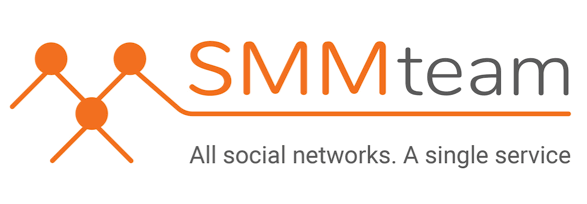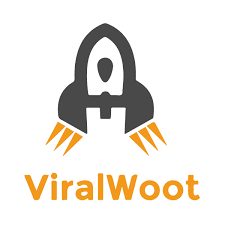Yes, social media analytics solutions can be used on numerous devices and platforms. Most modern tools are web-based, so they can be used from any device with an internet connection and a supporting browser. Furthermore, many tools provide mobile apps for on-the-go data analysis. Social media analytics can also be integrated with other marketing and business platforms, allowing for a more comprehensive view of social media performance across many channels.
List of 20 Best Social Media Analytics Tools
Mentionlytics is a platform for monitoring and analyzing your online presence. This robust tool offers a comprehensive view of social media activity, website performance, and campaign results. With advanced capabilities such as influencer identificat...Read More Mentionlytics
Iconosquare is a social media tool that revolutionizes the way businesses analyze and manage their online presence. With its advanced features, it provides accurate and comprehensive data for improving content strategies and engaging with followers...Read More Iconosquare
Vaizle is a marketing analytics platform tailored for marketers. It enables businesses to efficiently plan, execute, and evaluate their marketing campaigns across multiple channels. The interface is user-friendly, making it effortless to understand a...Read More Vaizle
Postmypost is a social media management software that enables you to schedule, curate, and analyze your content across all major platforms. Its user-friendly interface and advanced capabilities allow you to effortlessly create compelling posts, manag...Read More Postmypost
Quintly is a social media analytics software designed to meet all of your needs. With over 100 customizable metrics and a global reach of 63 countries, Quintly offers a comprehensive solution for obtaining insightful data and enhancing your social me...Read More quintly
Metricool is a social media management solution designed to help you improve your online presence. With our platform, you can effectively analyze your metrics, plan and schedule content, and monitor your online advertising campaigns. Elevate your dig...Read More Metricool
Hypevertise is a auditing tool for your influencer marketing campaigns. Our software offers a detailed analysis of an influencers audience, engagement, and posts, empowering you to choose the most suitable influencer for your brand. With our data-dri...Read More Hypevertise
SMM Team is a social media management solution for seamless collaboration with your team and clients. This powerful tool offers a range of features to streamline your work and enhance productivity. Say goodbye to tedious manual tasks and disorganized...Read More SMM Team
Keyhole is a Social Media Analytics Tool that provides intelligent marketing solutions. It offers a 360-degree view of your online presence, allowing you to monitor your brand, conduct market research, and track your campaigns effortlessly. Elevate y...Read More Keyhole
ViralWoot is a social media analytics platform designed to boost your online presence. With a comprehensive suite of features, including post scheduling, influencer engagement, content optimization, and campaign creation, ViralWoot takes your social...Read More ViralWoot
Buffer is a social media management tool designed for individuals, small businesses, and marketing agencies. This powerful software allows you to easily create and distribute content, interact with your followers, and track vital analytics, all from...Read More Buffer
Sprout Social is a social media management tool for businesses looking to boost their online presence and attract new customers. Our user-friendly platform allows you to curate a seamless brand image across multiple networks, while promoting better c...Read More Sprout Social
BuzzSumo is a social media analytics tool that is trusted by renowned brands such as HubSpot and News Corp. It provides comprehensive analysis of engagement and uncovers successful keywords, allowing businesses to identify and create impactful conten...Read More BuzzSumo
Brandwatch is a social media management platform designed to empower brands in engaging with their audience. It offers advanced research capabilities, real-time monitoring, and AI-powered analytics to assist in content curation and campaign managemen...Read More Brandwatch
AgoraPulse - the leading social media management solution used by over 31,000 managers worldwide. Streamline content management, enhance team collaboration, and access valuable insights with ease. With cost-effective pricing and top-notch customer su...Read More AgoraPulse
Free Snoopreport, our innovative Instagram activity tracker that simplifies monitoring likes and follows. With this efficient tool, gain valuable insights into user behavior and interests without the need to install additional apps. Whether youre an...Read More Free Snoopreport
talkAItive: harness the power of customer feedback to enhance your business. Our cutting-edge technology effortlessly interprets emotions expressed in social and NPS reviews, providing in-depth insights across products, locations, and brands. Amplify...Read More talkAItive
Hootsuite is social media management and marketing software that simplifies the process of creating personalized streams of social content through tabs. It offers a wide range of integrated social analytics tools, such as LiftMetrix and Crowd Analyze...Read More Hootsuite
Ubercircle is a social media management solution for businesses. With Ubercircle, you can effortlessly handle all your social profiles from one centralized dashboard. Streamline your brands social media presence and engage with your audience effortle...Read More Ubercircle
Sprinklr is a Social Media Management software, specially designed for large-scale enterprises. It presents a comprehensive solution for global marketing automation, social CRM, Twitter analytics, and digital asset management. With Sprinklr, business...Read More Sprinklr
Learn More About Social Media Analytics Tools
- What Is Social Media Analytics Tools?
- What Are The Recent Trends In Social Media Analytics Tools?
- Benefits Of Using Social Media Analytics Tools
- Important Factors To Consider While Purchasing Social Media Analytics Tools?
- What Are The Key Features To Look For In Social Media Analytics Tools?
- Why Do Businesses Need Social Media Analytics Tools?
- How Much Time Is Required To Implement Social Media Analytics Tools?
- What Is The Level Of Customization Available In Social Media Analytics Tools?
- Which Industries Can Benefit The Most From Social Media Analytics Tools?
- Conclusion
What Is Social Media Analytics Tools?
Social media analytics tools are software or platforms that help organizations monitor, measure, and analyze their social media presence and performance. These programs collect and analyze data from social media platforms including Facebook, Twitter, Instagram, and LinkedIn using a variety of algorithms and criteria. With the rapid rise of social media, it is critical for businesses to maintain a strong online presence and communicate with their target audience.
It might be difficult to maintain track of many social media channels and determine the impact of your postings and campaigns. This is where social media analytics tools come in. These tools provide a variety of functions, including real-time monitoring of social media discussions and mentions, competition analysis, demographic information, content performance tracking, and sentiment analysis.
They provide vital data to organizations, allowing them to make more educated decisions and improve their social media strategy. Social media analytics solutions benefit not just huge enterprises, but also small and medium-sized businesses. They provide inexpensive pricing options and customized dashboards, making them suitable for organizations of all sizes. These tools can also help marketers, influencers, and content providers track their social media impact.
What Are The Recent Trends In Social Media Analytics Tools?
Social media analytics technologies are always improving to keep up with the ever-changing digital scene. In recent years, there have been significant breakthroughs and advancements in this category that have changed the way organizations monitor and quantify their social media presence. As a result, staying current on these trends is critical for any organization wanting to generate success on social media.
Let's explore, we'll look at the latest developments in social media analytics tools and how they may help your business.
1. AI Integration: Artificial intelligence (AI) has become a crucial component of social media analytics platforms, allowing organizations to collect and analyze large volumes of data in real time. Businesses can use AI-powered solutions to find previously unknown insights and patterns, helping them to make data-driven choices more swiftly. These systems can also automate sentiment analysis, content curation, and audience segmentation, which saves firms time and resources.
2. Predictive Analytics: Another development in social media analytics tools is the incorporation of predictive analytics. These technologies use past data and machine learning algorithms to predict future trends, behaviors, and outcomes. This enables organizations to stay ahead of their competition and predict changes in their target audience's behavior, allowing them to alter their tactics accordingly.
3. Cross-Platform Analysis: With the proliferation of social media platforms, it has become difficult for organizations to monitor their performance across numerous channels. Recent advances in social media analytics tools have seen a shift toward cross-platform analysis, which allows organizations to see and compare their performance across multiple social media networks in one place. This gives them a comprehensive perspective of their social media presence and allows them to understand which platforms are delivering the most significant outcomes.
4. Real-Time Reporting: Social media is a fast-paced environment, and businesses must respond swiftly to trends or crises to retain their online reputation. With the new trend of real-time reporting in social media analytics tools, businesses can now monitor and analyze their performance in real time, allowing them to make quick changes to their plans. This also allows firms to monitor their audience's mood and respond quickly to any difficulties.
5. ROI: Businesses are increasingly keen on calculating the return on investment (ROI) of their social media operations. Social media analytics solutions have grown to provide detailed information about the financial impact of social media activities such lead generation, website traffic, and sales. This data enables organizations to assess the direct impact of their social media initiatives and make data-driven decisions for future campaigns.
Benefits Of Using Social Media Analytics Tools
As social media continues to play an important role in organizations' marketing strategy, the demand for data-driven decision-making grows. This is where social media analytics tools come in handy, giving firms with critical insights into understanding and optimizing their online presence.
The following are the primary advantages of employing social media analytics tools that every buyer should consider.
1. Real-Time Data Monitoring And Analysis: One of the most significant benefits of adopting social media analytics tools is the ability to monitor and analyze social media data in real time. This implies that organizations can keep up with the newest trends, conversations, and mentions about their brand and sector. Real-time data allows firms to respond promptly to customer requests, discover and fix issues, and track their competitors' activity.
2. Measuring Social Media: ROI In today's digital landscape, determining the return on investment (ROI) for social media activities is critical. Social media analytics tools let organizations evaluate their social media performance, measure campaign efficacy, and discover areas for improvement. This data-driven approach enables businesses to justify their social media investments and make educated decisions about future initiatives.
3. Audience Insights And Segmentation: Understanding your audience's demographics, preferences, and behaviors is critical for developing effective marketing tactics. Social media analytics solutions provide detailed audience details, such as age, gender, location, and interests, allowing businesses to modify their content and target specific groups. This data is also useful for ad targeting and personalization, which leads to higher engagement and conversions.
4. Competitive Analysis: With so many brands vying for attention on social media, keeping an eye on the competition is critical. Social media analytics tools enable organizations to monitor their competitors' social media activities, discover their best-performing content, and compare their methods to industry standards. These insights can help businesses stay ahead of the competition and adjust their plans accordingly.
5. Improved Customer Service: Social media analytics tools can also help you provide outstanding customer service. Monitoring social media conversations allows firms to swiftly detect and handle customer complaints, respond to criticism, and provide timely help. This proactive strategy can boost customer satisfaction, loyalty, and brand reputation.
Social media analytics solutions provide numerous benefits to organizations of all sizes, including real-time data monitoring and improved customer service. Organisations that use these technologies can gain a competitive advantage, make data-driven choices, and maximise the potential of their social media presence.
Important Factors To Consider While Purchasing Social Media Analytics Tools?
When acquiring social media analytics solutions, it is critical to evaluate several crucial elements to guarantee you are making the best investment for your company.
Here are some key elements to consider before making a purchase:
1. Your Individual Needs: The first and most important element to examine is your individual requirements and goals for employing social media analytics tools. varied tools have varied features and capabilities, thus it is critical to understand what you want to achieve with these tools. This will help you limit down your alternatives and select the best tool for your needs.
2. Platform Integration: Before purchasing a social media analytics product, ensure that it integrates with the platforms you use. The application should be able to collect data from all of your social media accounts, including Facebook, Instagram, Twitter, and LinkedIn. This ensures that you receive a thorough and accurate review of your social media performance.
3. Data Accuracy And Reliability: In the field of social media analytics, data accuracy and reliability are critical. Check if the product uses reliable data sources and includes built-in algorithms to filter out irrelevant or spam data. It is also critical to monitor the frequency of data updates to ensure that you are receiving real-time information.
4. User-Friendly Interface: A user-friendly interface is required to fully utilize the functions of social media analytics tools. The interface should be simple to use and understand, even for non-technical users. It should also have customisable dashboards, reports, and visualizations to help you evaluate and interpret the data.
5. Cost And ROI: As with any other investment, the cost and return on investment (ROI) of social media analytics solutions must be carefully considered. Consider the pricing plans and features given by various tools to see which one provides the most value for your money. Also, see whether the tool offers a free trial or demo so you may try it out before making a purchase.
6. Customer Support: If you encounter any problems or have inquiries while utilizing the tool, dependable customer service is essential. Look for solutions that provide 24-7 technical assistance and a responsive customer service team. You may also read reviews and ratings from other customers to get a sense of the tool's customer support.
When selecting social media analytics solutions for your business, keep these six crucial factors in mind to make an informed purchase. Remember to consider your demands, integration capabilities, data quality, user-friendliness, cost, and customer support when selecting the ideal solution to assist you reach your social media objectives.
What Are The Key Features To Look For In Social Media Analytics Tools?
When selecting the best social media analytics platform for your business, there are a few crucial characteristics to consider. These capabilities can help you measure and analyze your social media performance, find areas for growth, and make data-driven decisions that lead to success. So, before you make a decision, these are the important characteristics to look for in social media analytics tools:
1. Data Integration: A decent analytics solution should be able to pull data from all of your social media networks, including Facebook, Twitter, and Instagram. This provides a comprehensive perspective of your total social media performance while eliminating the effort of manually collecting data from each network.
2. Real-Time Monitoring: Social media moves quickly, and to stay up, you'll need a platform that provides real-time monitoring. This means you can monitor mentions, comments, and engagements as they occur, allowing you to respond promptly to consumer interactions or issues.
3. Customizable Dashboards: Each organization has its own set of goals and metrics that it wants to track. Look for an analytics platform that supports configurable dashboards, so you can select the metrics that are most important to your organization and simply display them in one location.
4. Sentiment Analysis: While it is crucial to analyze the amount of likes and shares, it is also critical to understand the sentiment underlying those interactions. A good social media analytics platform should include sentiment analysis, which allows you to understand how people perceive your brand and where there may be room for development.
5. Competitor Analysis: Use a technology that allows you to track your competitors. This function enables you to compare your performance to that of your competitors, spot trends, and determine your position in the industry.
6. Data Reporting: Detailed and customisable reports are critical for assessing success and communicating data to stakeholders. Look for an analytics platform that can generate automated reports and allows you to adapt them to meet your specific needs.
When selecting a social media analytics tool, consider these critical aspects to guarantee that you are making an informed decision that will help you reach your social media objectives. Take the time to investigate and compare several possibilities to determine the greatest fit for your company. With the correct analytics tool, you can elevate your social media approach and get tangible results.
Why Do Businesses Need Social Media Analytics Tools?
In today's digital age, social media has emerged as a crucial marketing tool for organizations of all sorts. With billions of active users across several social media platforms, it is critical for businesses to establish a strong presence and communicate with their target audience. However, merely being visible on social media is insufficient; businesses must also assess their performance and track their progress. This is where social media analytics tools come in.
These technologies are intended to gather, analyze, and interpret data from a variety of social media networks. They give organizations vital information about their social media performance, audience behavior, and competition, allowing them to make data-driven decisions. One of the primary reasons why organizations use social media analytics solutions is to determine their return on investment (ROI).
Businesses can use these tools to track and analyze the efficacy of their social media initiatives, as well as identify which techniques are most effective. This enables them to better spend their resources and make required changes to their campaigns to boost their overall ROI. Furthermore, social media analytics tools can help firms better understand their target demographic.
They give significant demographic and psychographic data, allowing organizations to get insights into their target audience's interests, preferences, and habits. This data may be utilized to personalize content and ad campaigns to better connect with the target audience, resulting in increased engagement and conversions. Furthermore, these solutions enable firms to track their internet reputation and client opinion.
Businesses can swiftly detect and handle customer problems while also improving their brand image by analyzing social media mentions and reviews. Furthermore, social media analytics tools enable firms to keep ahead of the competition. Businesses that follow their competitors' social media activities might recognize their strengths and shortcomings and adapt their tactics accordingly in order to stay competitive.
How Much Time Is Required To Implement Social Media Analytics Tools?
The time required to integrate social media analytics tools varies depending on several factors. These factors include the tool's sophistication, the extent of your social media presence, and your analytics experience. The initial setup and integration procedure can last anywhere from a few hours to a few days. To begin, the tool's complexity might significantly impact installation time.
Some analytics solutions are easier to use and set up, but others may require more technical understanding. To simplify the implementation process, conduct thorough research and select a product that meets your requirements and ability level. Second, the scale of your social media presence can influence the time required to install the tools.
If you have a huge following and various profiles across multiple platforms, it may take longer to set up and integrate the analytics tool. On the other hand, if your social media presence is little, the implementation procedure may be faster. Finally, your level of knowledge with analytics tools can influence the time it takes to integrate them. If you have experience with similar products, you may be able to set up and use the social media analytics tool more effectively.
However, if you are new to analytics, you may need to spend some time learning the tool's capabilities and functionalities. To summarize, implementing social media analytics tools can take anything from a few hours to a few days, depending on the tool's sophistication, the extent of your social media presence, and your level of experience. To ensure a successful implementation, carefully select a tool that meets your requirements and allow enough time for the initial setup and integration phase.
What Is The Level Of Customization Available In Social Media Analytics Tools?
Social media analytics solutions give organizations significant insights into their social media performance, allowing them to track their progress, discover areas for growth, and make data-driven choices. The level of customisation provided is an important factor to consider when selecting a social media analytics tool. This refers to the capacity to customize the tool to your individual requirements and tastes.
Customization possibilities vary widely among social media analytics systems. Some may provide a one-size-fits-all solution, but others may allow for more personalized and detailed customisation. There are several elements to consider when deciding on the appropriate level of customization for your organization. First, consider which metrics and data are most critical to your organization.
Does the tool allow you to track and analyze these specific metrics? Can you develop bespoke reports to meet your requirements? Look for a solution that allows you to specify which data and metrics you wish to focus on. Second, think about the interface and user experience. Can you adjust the dashboard such that the data makes sense to you? Can you reorganize or prioritize the info according to your preferences?
A tool with a customizable interface can make data analysis much easier and more efficient. Another key feature of customisation is the ability to configure alerts and notifications for certain metrics. This can help you remain on top of any significant changes or trends in your social media performance. Look for a platform that allows you to create customized notifications for indicators that are important to your organization.
Finally, consider the amount of control you have over your social media data. Can you export the data in many forms for your own analysis? Can you combine the product with other platforms and technologies you already use? The more control you have over your data, the more personalized and useful the analytics will be for your company.
Which Industries Can Benefit The Most From Social Media Analytics Tools?
Social media has become an integral part of modern business, with the majority of companies using various social media platforms to communicate with customers and market their products or services. However, with so much user-generated information on these platforms, it can be difficult for businesses to adequately monitor and analyze their social media footprint. This is where social media analytics tools come into play, providing businesses with useful insights and data to help them better their marketing strategy and overall online visibility. Industries that rely heavily on social media for communication and promotion stand to profit the most from social media analytics tools.
The following are some of the top industries that can benefit from employing these tools:
1. Advertising And Marketing: Social media analytics tools are essential for advertising and marketing companies because they allow them track the efficacy of their campaigns and find potential customers. These tools, which analyze consumer activity and participation on social media, can provide important insights for targeted advertising and content production.
2. E-commerce: Online merchants can use social media analytics tools to monitor trends, analyze customer comments, and track product performance in order to optimize their marketing strategy and overall shopping experience for customers.
3. Hospitality And Travel: Social media is an effective tool for the hospitality and travel industries, with clients frequently using platforms such as Instagram and TripAdvisor to study and compare possibilities. Businesses in this area might use social media analytics tools to monitor online reviews and feedback in order to improve their services and customer experience.
4. Healthcare: Social media analytics technologies can help healthcare providers collect patient input, monitor their online reputation, and better understand their patients' needs and preferences. This can help create more targeted and effective marketing initiatives while also increasing patient happiness.
5. Media And Entertainment: In today's digital environment, social media is heavily used to engage and communicate with viewers. Social media analytics solutions may assist track interaction and audience demographics, resulting in a better understanding of consumer preferences and content creation insights.
Conclusion
To summarize, choosing the correct social media analytics platform for your organization is critical for getting valuable insights and optimizing your overall social media strategy. With so many options on the market, it can be difficult to identify which instrument is ideal for your specific needs. However, by taking into account essential criteria such as your budget, business goals, and desired features, you can make an informed decision that will enhance the effectiveness of your social media efforts.
When reviewing possible tools, it's critical to prioritize characteristics that match your goals. For example, if you want to determine the efficiency of your social media initiatives, seek for platforms that provide extensive performance metrics and tracking. If you want to better understand your audience and their behavior, choose technologies that provide extensive audience segmentation and demographic analytics.
In addition, assess the tool's usability and ease of deployment. This is especially critical if you do not have a specialized social media team and may need training or help to use the tool properly. Look for tools with intuitive interfaces and resources like training videos, tutorials, and customer support. It's also important to consider your budget and the long-term expense of the tool.
Some tools may provide appealing features at a reduced cost, but they may have hidden costs or charge extra for additional users or access to sophisticated capabilities. Consider the tool's scalability and its ability to handle future business expansion. Overall, the key to choosing the best social media analytics tool is to properly examine your company's requirements and compare them to the features and capabilities of the numerous solutions available. This allows you to make an informed selection that will effectively support your social media initiatives and generate commercial success.
Social Media Analytics Tools FAQ's
Can Social Media Analytics Tools Be Accessed Across Multiple Devices And Platforms?
Is Social Media Analytics Tools Future-Proof And Adaptable To Emerging Technologies Like AI, Blockchain Or IoT?
Social media analytics solutions are constantly improving to keep up with emerging technologies such as artificial intelligence (AI), blockchain, and IoT. These tools are future-proof since they can adapt to new technology seamlessly. AI enables social media analytics tools to examine data at a higher level, delivering important insights.
Blockchain can guarantee secure data collection and analysis, whilst IoT can provide real-time data for more precise analysis. Thus, social media analytics solutions are well-equipped to deal with technological developments and remain useful for the foreseeable future.
Is There A Free Trial Offered To Assess Social Media Analytics Tools Before Committing?
Yes, many social media analytics platforms include a free trial period in which customers can try their features and capabilities before making a commitment. This enables consumers and corporations to examine the tool's performance and compatibility with their specific requirements.
This is an excellent opportunity to determine whether the tool provides the needed information and analytics for your social media strategy. Tools that provide free trials include Hootsuite, Sprout Social, and Buffer.
Does Social Media Analytics Tools Offer Data Security Features And Meet Regulatory Compliance Standards?
Yes, most social media analytics solutions have data security safeguards and adhere to regulatory criteria established by governing organizations. These technologies protect sensitive information by employing encryption mechanisms, secure login protocols, and data backups. They also follow regulations such as GDPR and CCPA, and can give compliance reports on request. Businesses can now examine their social media data with confidence, knowing that it is secure and compliant.
Can Social Media Analytics Tools Integrate Seamlessly With Existing Tools And Platforms?
Yes, most social media analytics systems can smoothly interface with other tools and platforms. This enables firms to streamline their data collecting and analysis procedures, making them more efficient and thorough.
Data may be simply retrieved from various social media platforms and combined with current data using API connections, resulting in a comprehensive view of social media performance. This interface also supports adaptable reporting and visualizations, allowing businesses to track social media analytics alongside other critical performance indicators.






















